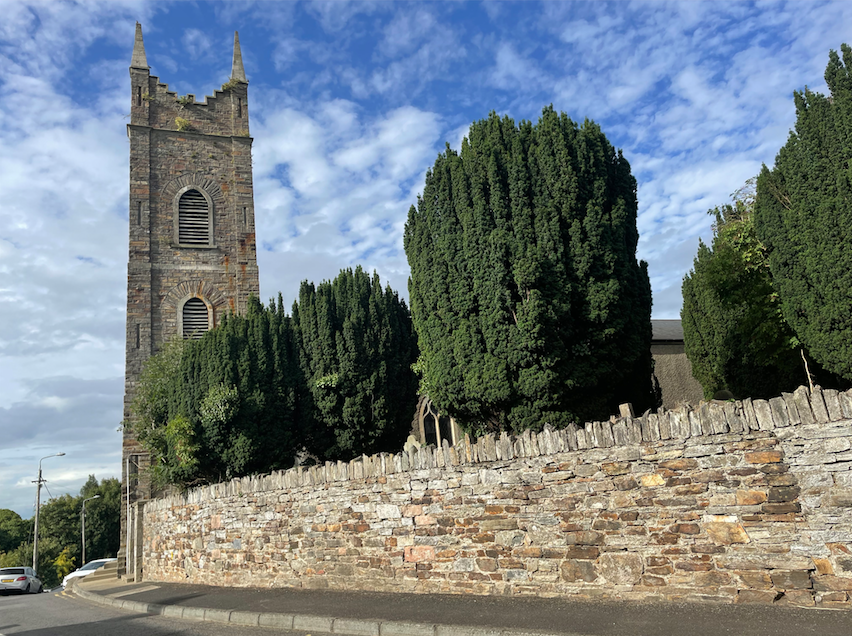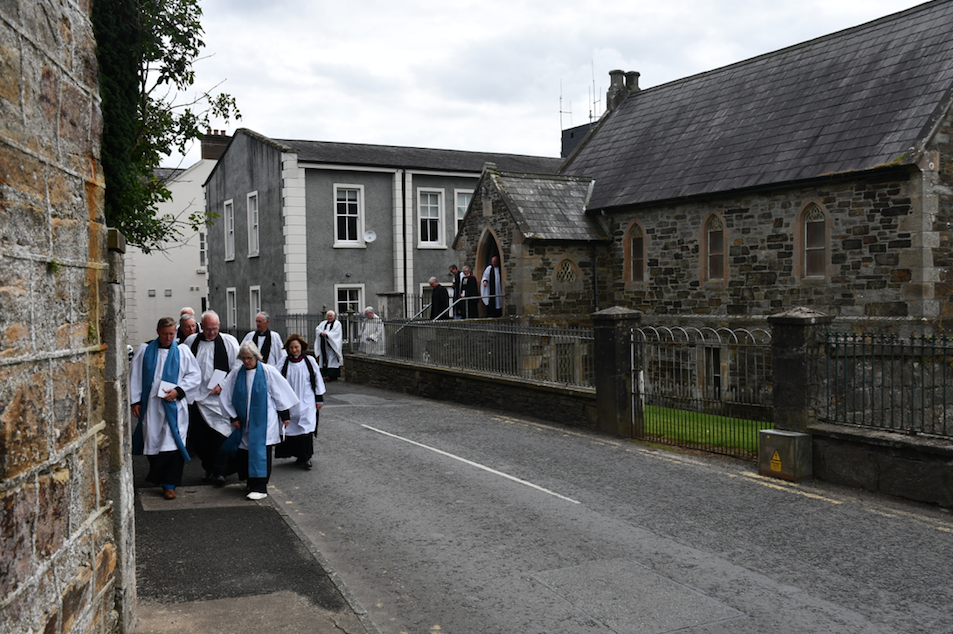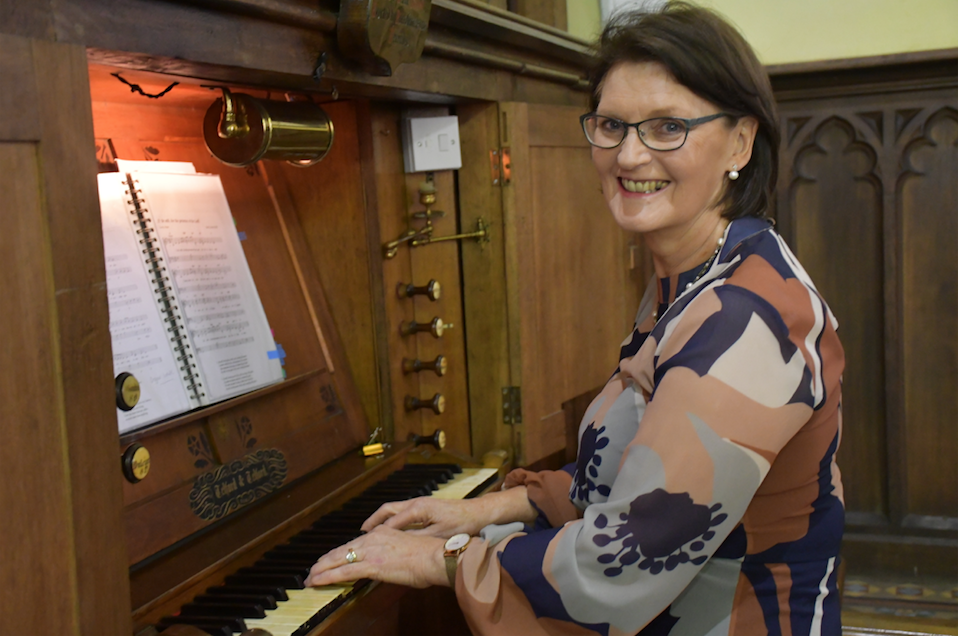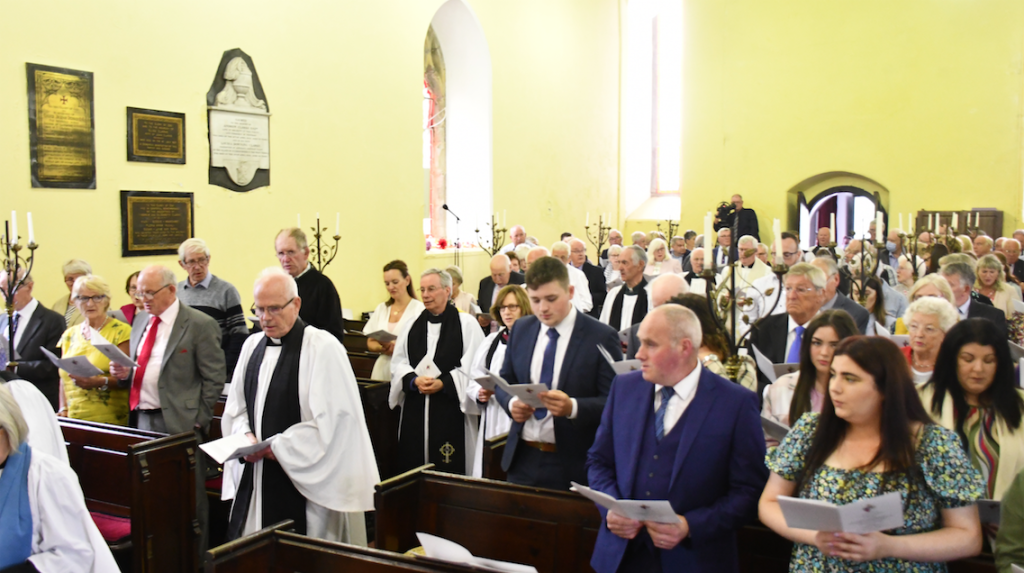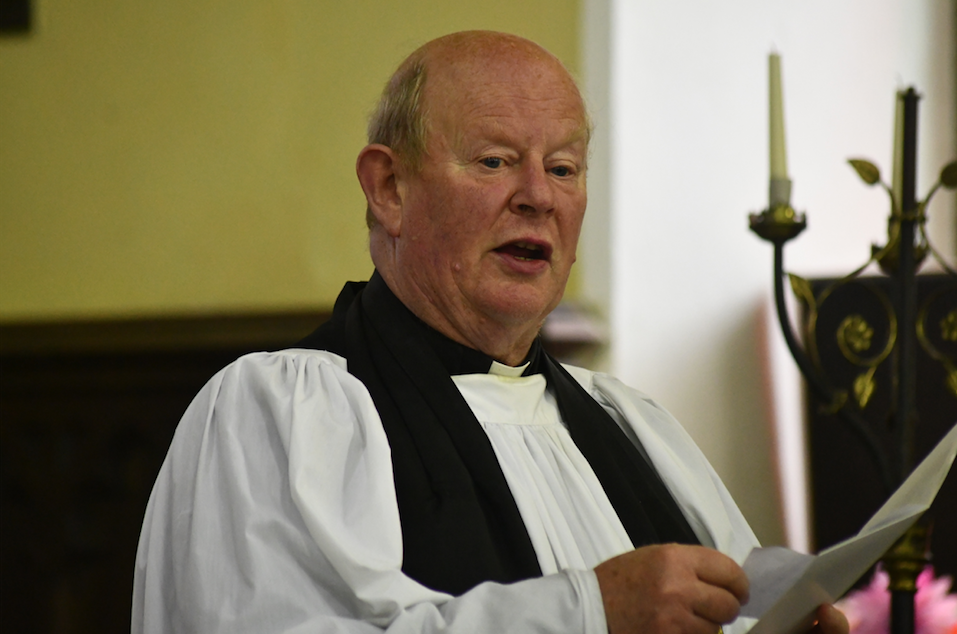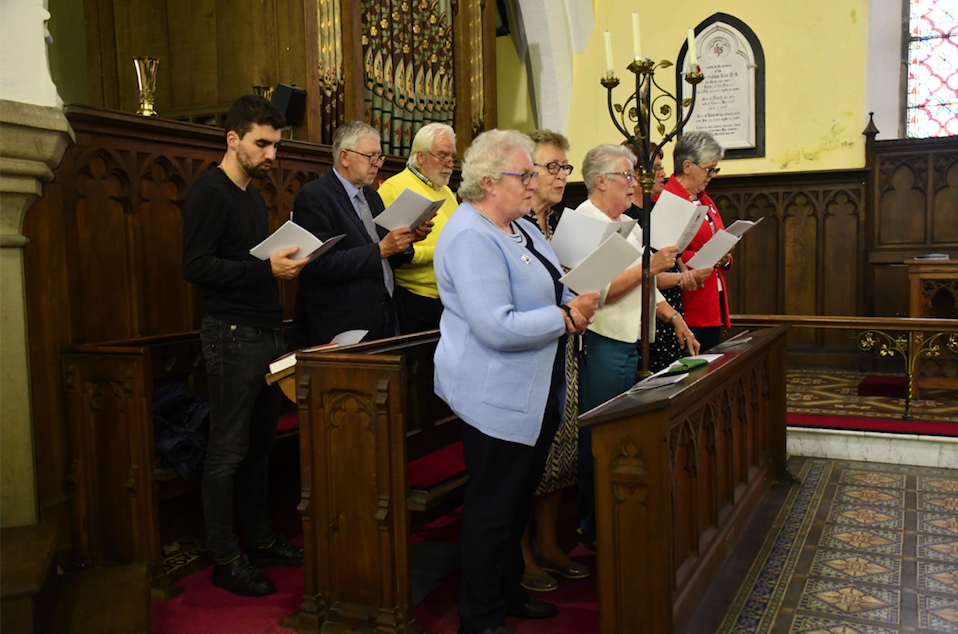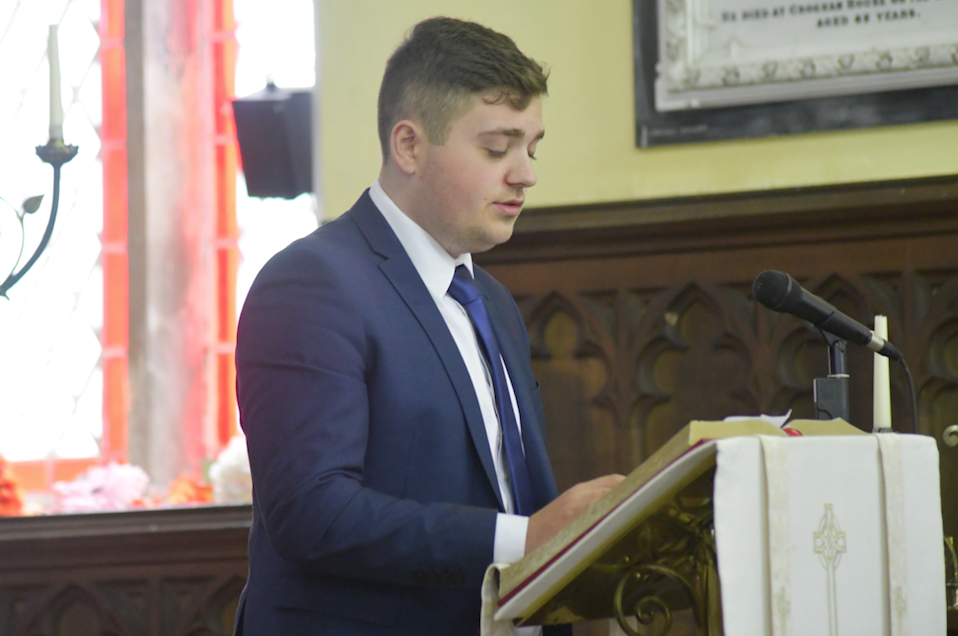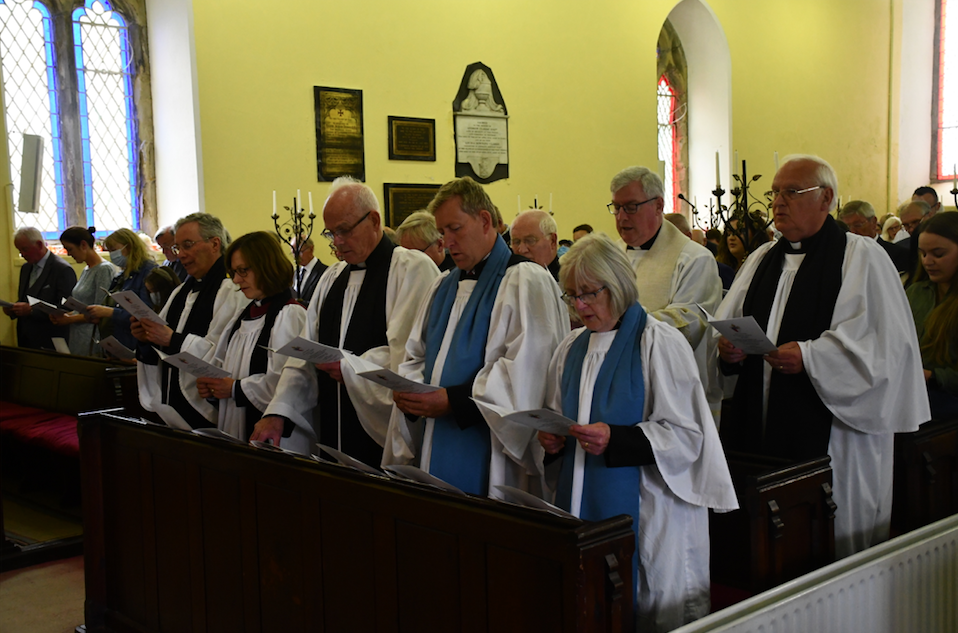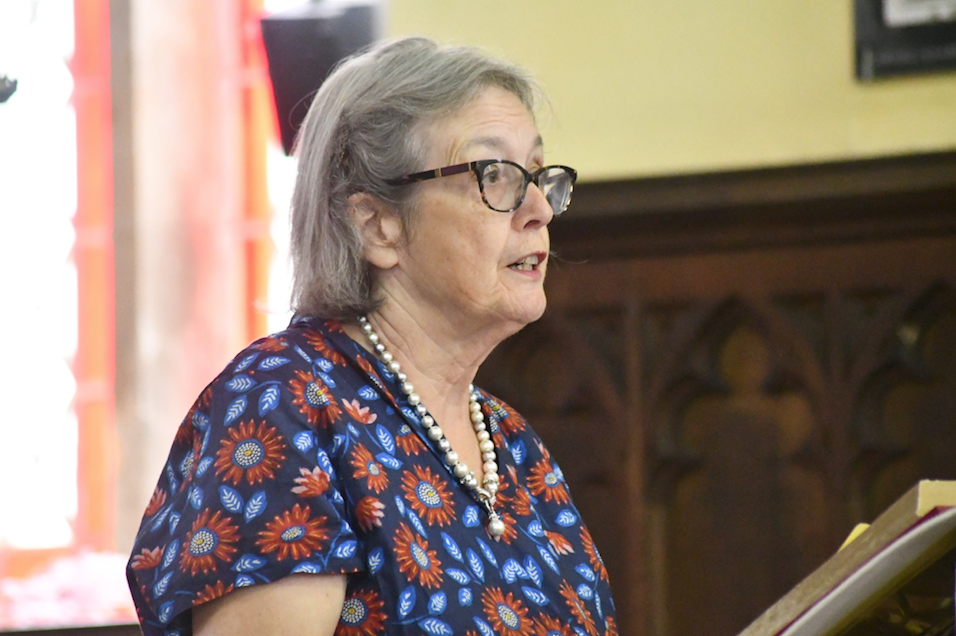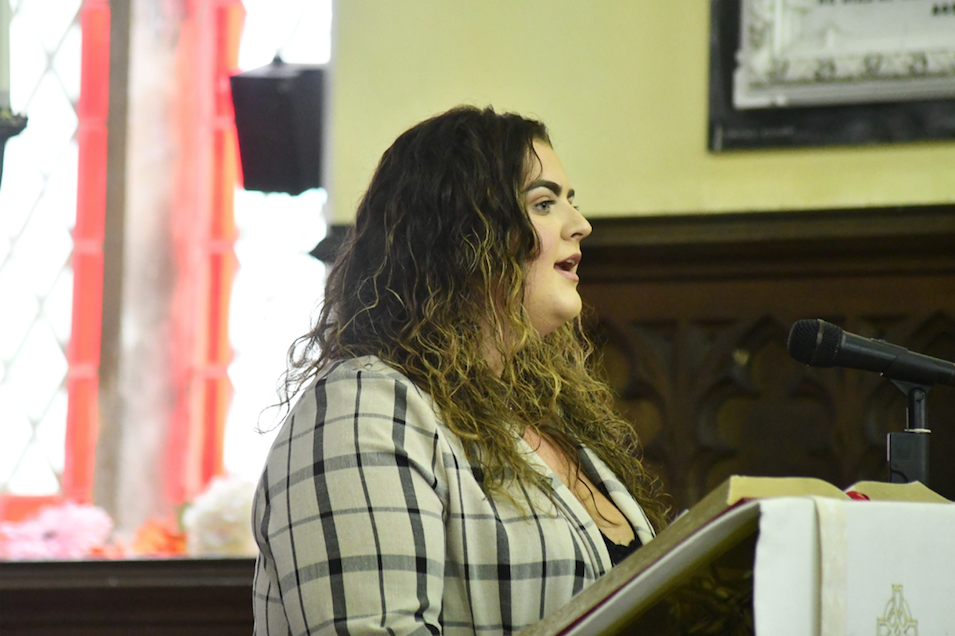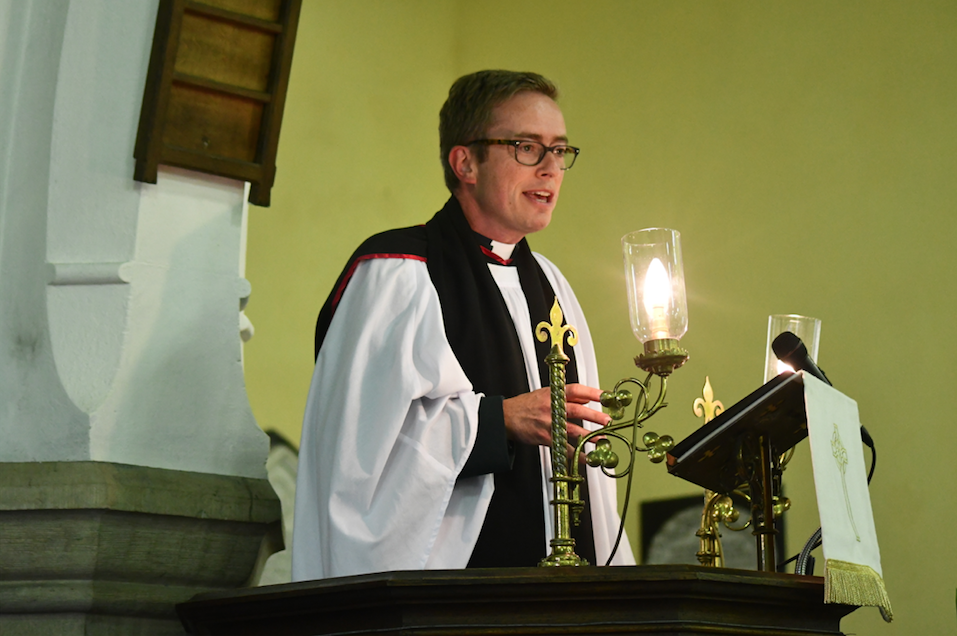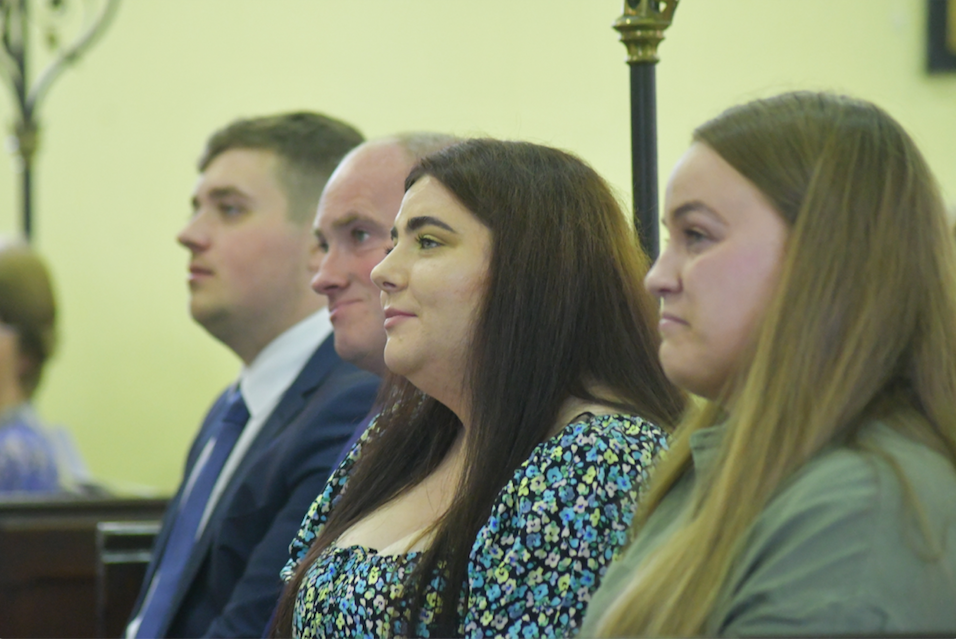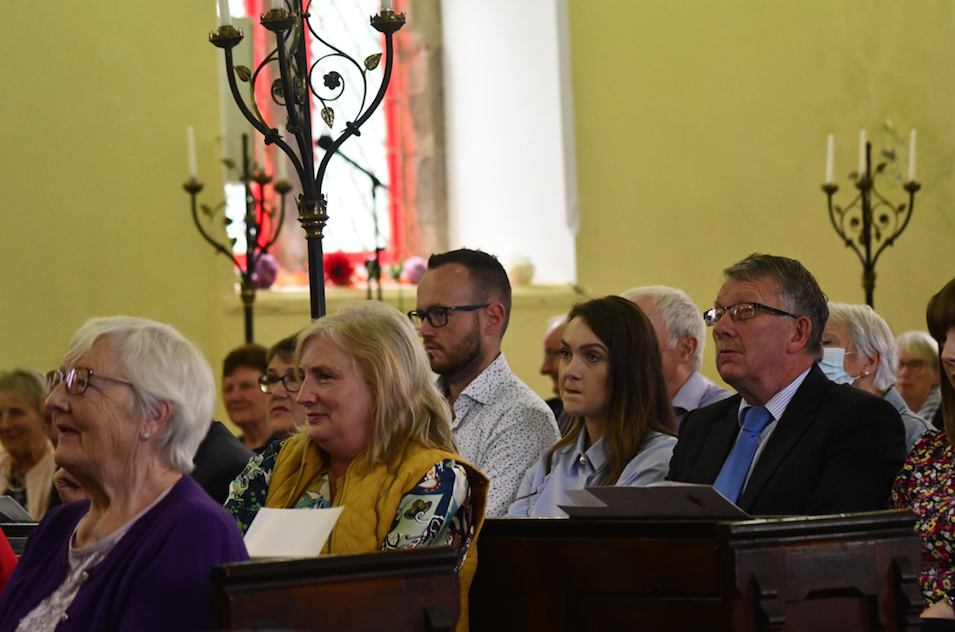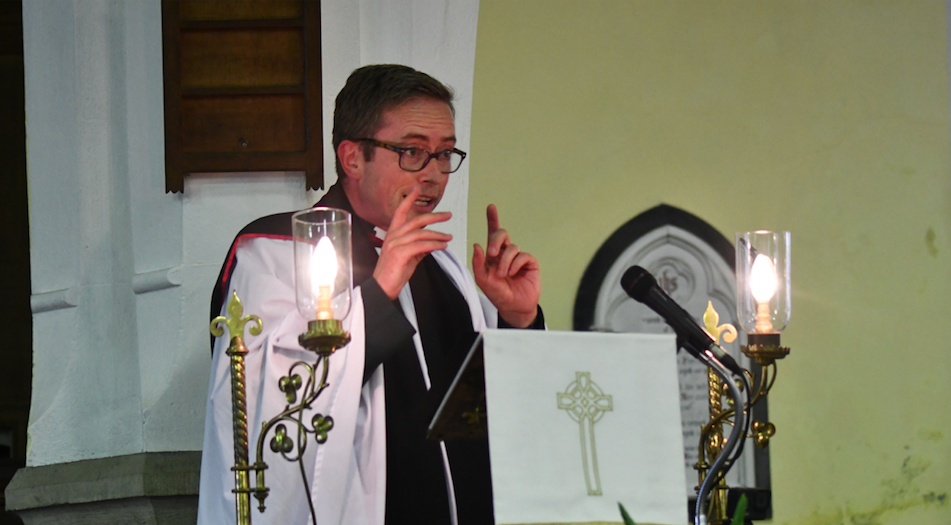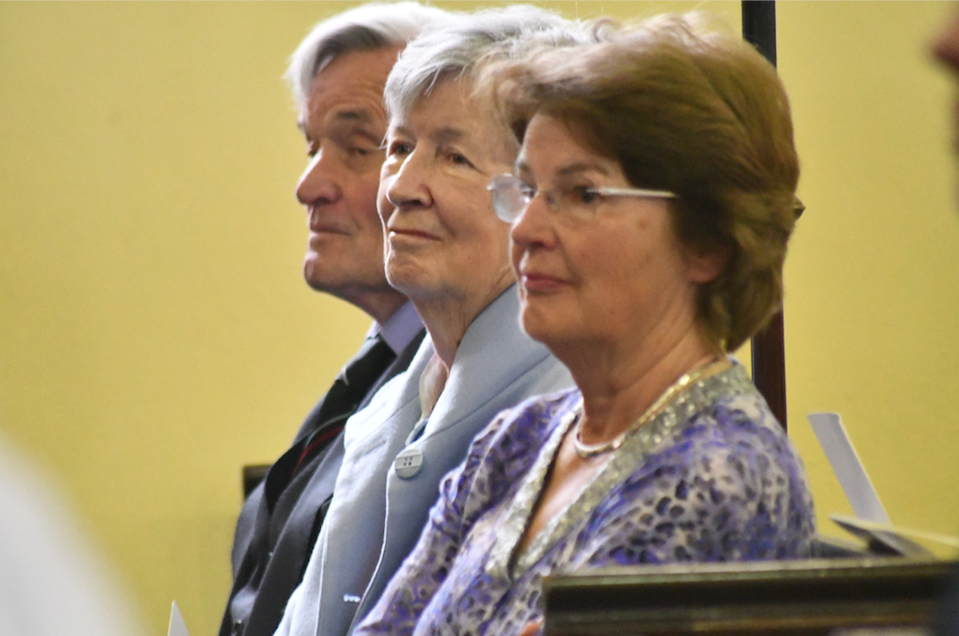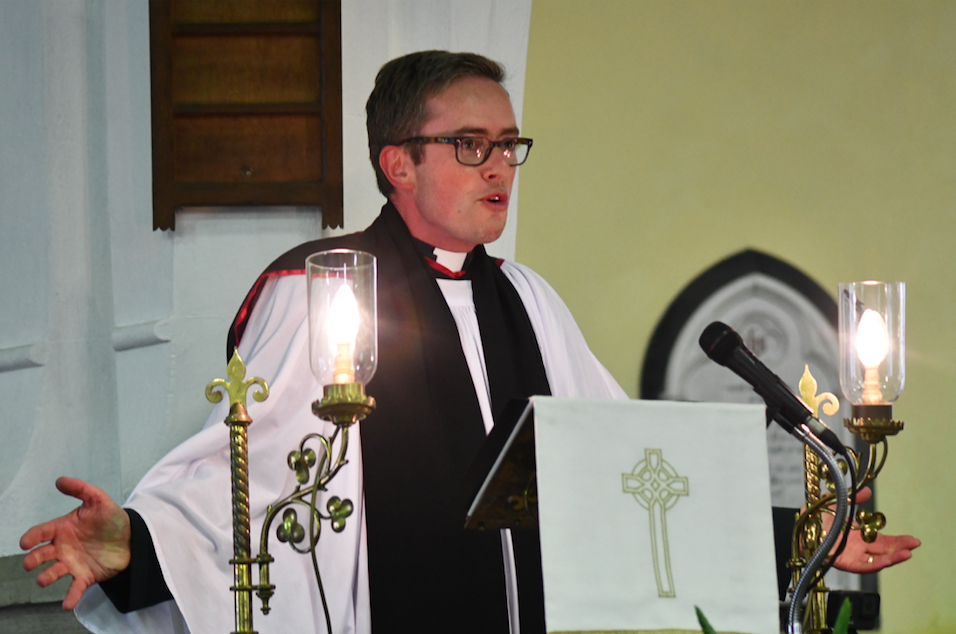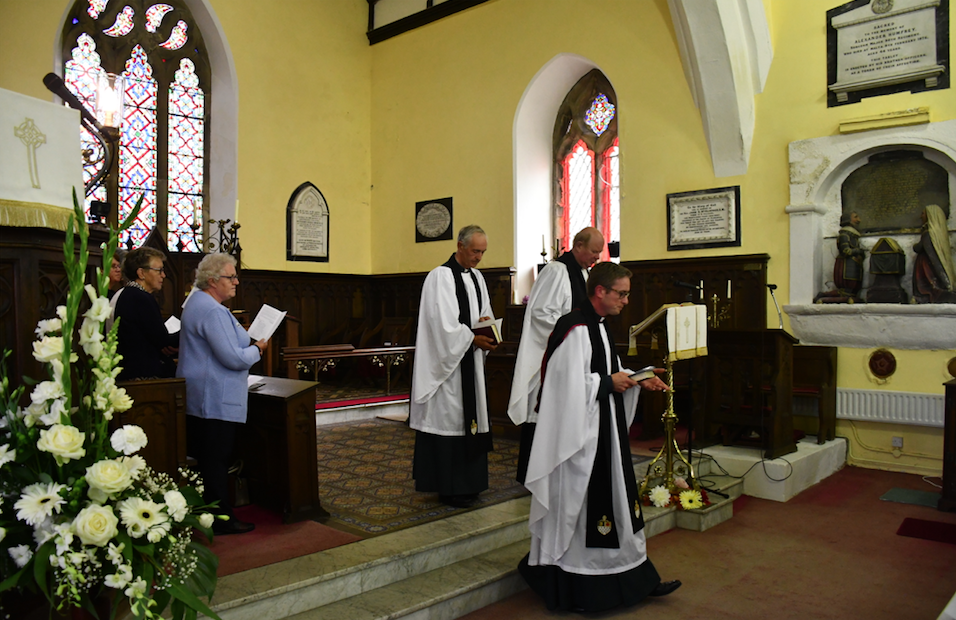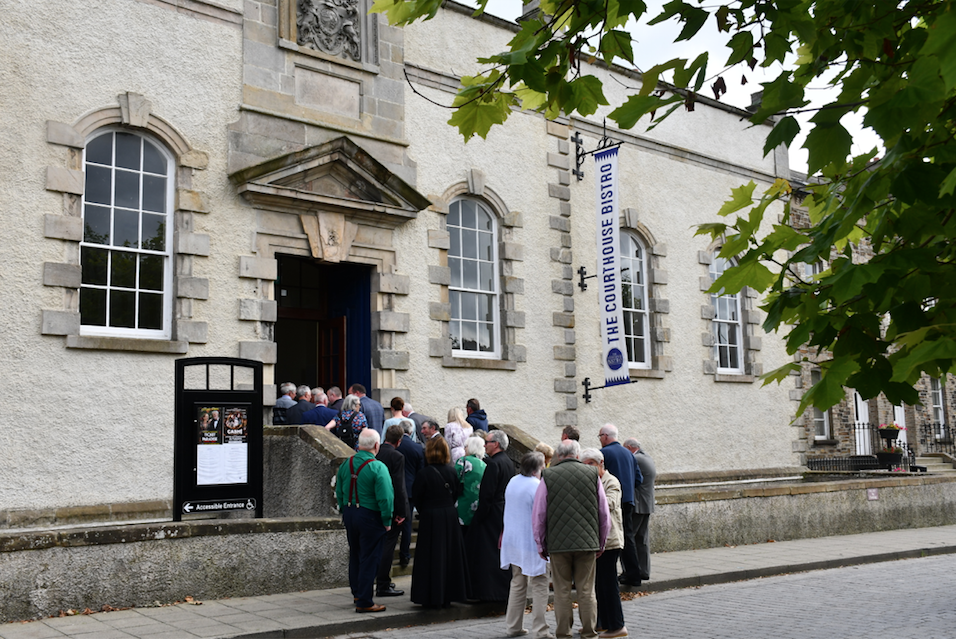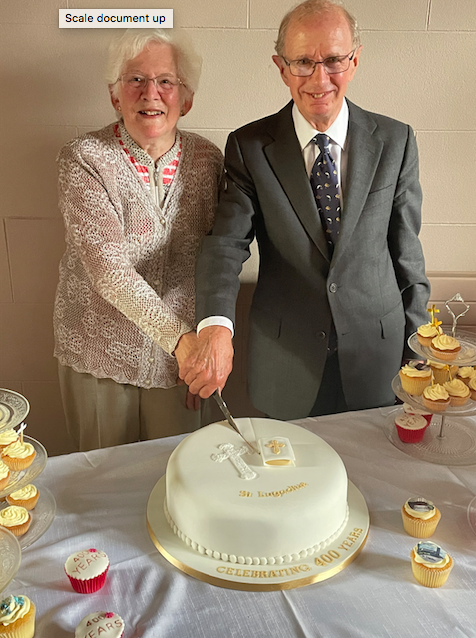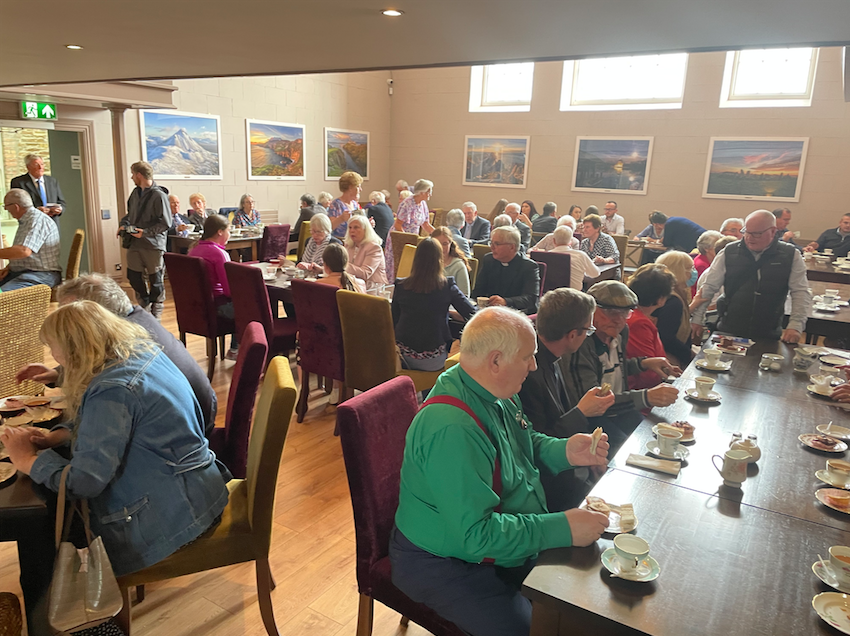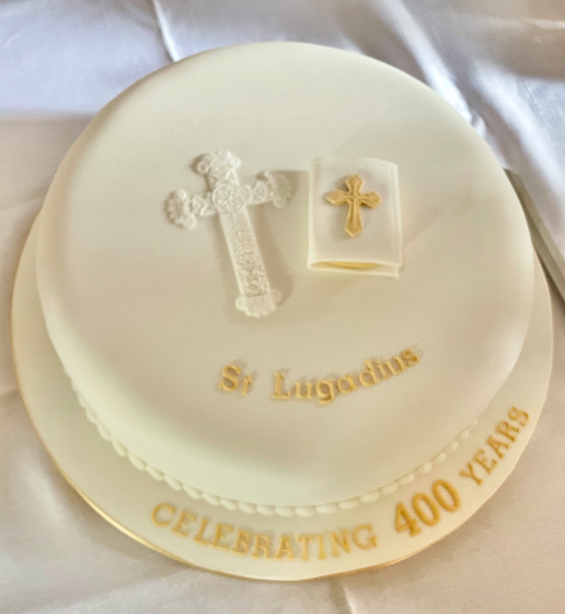“What a wonderful place,” the Archdeacon of Raphoe said, this afternoon, in St Lugadius’ Church in Lifford, “what a blessing that this house has stood for 400 years, and that people have found God’s heart here and been transformed by the word of God and by the Holy Spirit here.”
Venerable David Huss was preaching at a special service celebrating the 400th anniversary of St Lugadius’ Church, which is named after one of the twelve who accompanied St Columba to the Scottish island of Iona, almost 1,500 years ago. “How enthusiastic we should be not only to preserve it,” Archdeacon Huss said, “but to enjoy it and to attend it.”
The present church was built in 1621, and, sadly, the coronavirus pandemic thwarted plans to mark the anniversary last year, 400 years after its construction. Today, though, parishioners and friends celebrated the achievement in style, with a service led by the Rural Dean, Rev Canon David Crooks, assisted by Canon John Deane and Archdeacon Huss, and refreshments – and a special cake – afterwards, in the nearby Old Courthouse Building.
Archdeacon Huss chose two themes for his sermon: a wholesome heritage and a firm foundation. St Lugadius’ Church – which was funded through the generous bequest of Sir Richard Hansard and his wife – was begun around 1621 and is one of only a few churches in Ulster still standing from that period. “This evening,” the Archdeacon said, “we give thanks for that vision, 400 years ago, that a house of worship would be built, that the children of God would have a place to come and offer their prayers and praises to His holy name, to hear His word and to receive the sacraments.”
St Lugadius’ Church was a place of memories, the preacher said, a place of mission, a place that pointed to something greater. “Church buildings serve as signposts. They stand in a country area, or an urban area, as a pointer to greater realities. That is why it is so important that we work to maintain the structure itself as well as the life that takes place within it.”
It was natural, on occasions such as today, Archdeacon Huss said, for people’s thoughts to turn to the future. “Perhaps we find it easier to celebrate the glories of the past than to be confident of what lies ahead,” he said, “because we’re at a time of change and [at] something of a turning point in society. If we even try to guess what the next 400 years hold it would be impossible; even the next 40 will almost certainly bring ongoing rapid change.”
The preacher suggested, though, that we could derive strength from Christ’s words in Matthew 7. “’Everyone who hears these words of mine and does them will be like the wise man who built his house on the rock…Everyone who hears these words of mine and does not do them will be like a foolish man who built his house on the sand.’ He’s talking about firm foundations.
“And so, with our lives as Christian individuals and as the Christian Church, as we seek to build into the future and as we seek to navigate all that lies ahead, we need solid ground on which to stand and on which to build. What exactly is the firm foundation which Our Lord speaks of here in Matthew 7? Well, he says, ‘Whoever hears these words of mine and does them will be building on a firm foundation.’ The foundation is the Lord and His word, and putting it into practice. It is so tempting, in a time of change, to take comfort in tradition or to go running after innovation; to trust old things just because they’re old, or to look for new things just because they’re new. It’s so tempting to say, ‘I was brought up with this so it must be right’; or to say, ‘Everyone today is saying this, so that must be right.’ But, no, we don’t try simply to be traditional, we don’t try simply to be trendy, we try to be true to Christ. We build on His words.”
There was still so much, Archdeacon Huss said, that the word of God had to say to today’s world. “So many of the things that people value today – even those who have turned away from the faith – they will value freedom, equality, progress and kindness. These are Christian ideas. And even when our friends want to enjoy those fruits of Christianity without the roots of Christianity, they give us an opportunity to point them back to the foundation.” A church that is going to be fit for the 21st century, the Archdeacon said, would be a church that taught like Jesus did: not clinging to tradition, not rushing to innovation, but taking the ancient ways and applying them to new problems.
